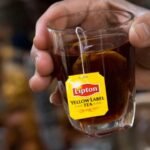Unilever Nigeria Plc a listed company on the Nigerian Stock Exchange, on Wednesday in notified the Exchange and the investing public that, Unilever Plc (global Unilever) is beginning the process of separating its tea brands business.
The separation which is expected to conclude by the end of 2021, will see Unilever’s tea brands and geographies and all tea estates operating as a separate entity, excluding tea businesses in India and Indonesia, and the partnership interests in the ready-to-drink tea joint ventures.
Unilever in a press release titled, “half-year results: performance reflects agility and resilience of the business” said that “in January, we announced a strategic review of the global tea business, which includes leading brands such as Lipton, Brooke Bond and PG Tips.
“This review has assessed a full range of options. We will retain the tea businesses in India and Indonesia, and the partnership interests in the ready-to-drink tea joint ventures.
“The balance of Unilever’s tea brands and geographies and all tea estates have an exciting future, and this potential can best be achieved as a separate entity. A process will now begin to implement the separation, which is expected to conclude by the end of 2021.
“The tea business that will be separated generated revenues of €2 billion in 2019.”
Have you read?
- Unilever Nigeria Plc endures N519.11 million loss in H1 2020, N1.63 billion loss reported between April and June
- Brent Crude rises to 5 months high in the wake of Lebanon Explosion
Unilever Plc overall performance in the first half of 2020 according to the press release;
Turnover decreased 1.6%. There was a positive impact of 1.1% from acquisitions net of disposals and a negative impact of 2.5% from currency.
Underlying operating profit was €5.1 billion, an increase of 3.8% excluding a negative impact from currency of 3.2%. Underlying operating margin improved by 50bps.
Unilever delivered free cash flow of €2.9 billion, an increase of €1.3 billion. The increase was driven by favourable working capital movements, reduced capital.
Underlying sales declined by 0.1% with volumes declining 0.3% and price growth of 0.2%. Developed markets grew 2.4% whilst emerging markets declined 1.9%.
Food service declined by nearly 40% and out-of-home ice cream declined by nearly 30%. Shoppers moved from offline to online channels, driving ecommerce growth of 49%.
Consumers eating and cleaning more at home, and focusing more on hand hygiene, led to underlying sales growth in North America of 9.5% in the second quarter, despite a negative impact of 3.7% from food solutions and Prestige channel closures.
During the second quarter, Unilever completed the acquisitions of the health food drinks portfolio of GlaxoSmithKline in India, Bangladesh and 20 other predominantly Asian markets. Acquiring the iconic brands Horlicks and Boost is in line with Unilever’s strategy to enhance its presence in healthy nutrition. expenditure and lower cash tax paid, primarily a result of higher tax on disposals in the prior year relating to the disposal of the spreads business.
Written by;
Ifunanya Ikueze





















































